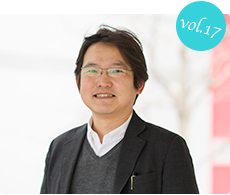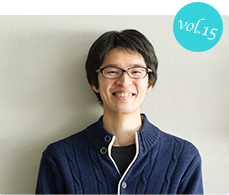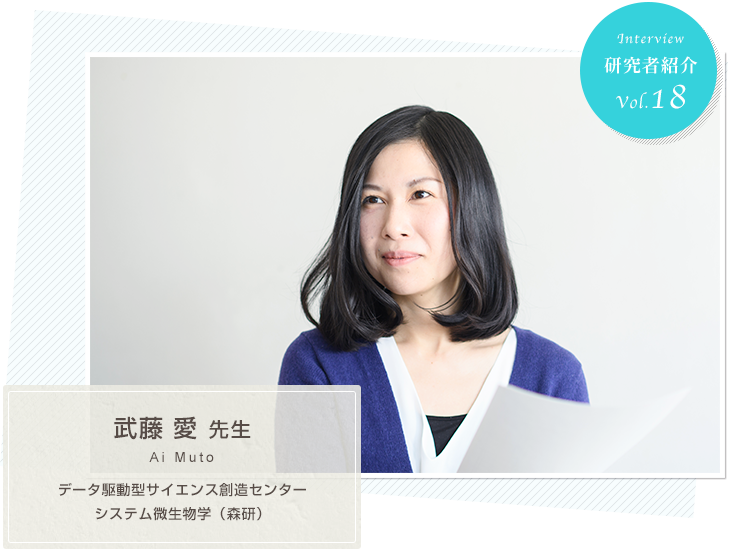
![]()
D. in Biological Sciences, Graduate School of Science, Kyoto University. D., Assistant Professor at Nara Institute of Science and Technology (NAIST) since 2014. She specializes in bioinformatics and systems biology. Her current research focuses on metabolic network models based on comprehensive genetic interaction analysis of Escherichia coli.
Why did you become a researcher?
I specialize in "bioinformatics," which aims to elucidate life phenomena using computer science methods. When I was in high school, I liked chemistry and thought that since living organisms are also a series of chemical reactions, it would be possible to understand living organisms from the perspective of chemistry. Bioethics was a very hot topic at the time, with the birth of Dolly the cloned sheep in 1996 and the release of the futuristic movie "Gattaca" in 1998 about "designer babies" genetically engineered to have superior genes. I was initially critical of the fact that science allowed people to do unethical things, but when we discussed this issue in class, a friend of mine said to me, "If people are going to make mistakes through science, then they need to be solved by people through science. That really stuck with me. That stuck with me and made me want to be a biologist, and that was the beginning.
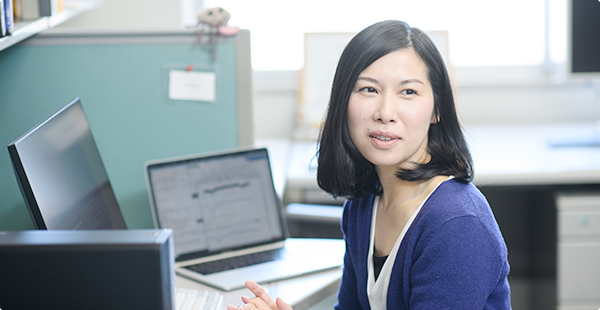
In college, I majored in chemistry at the School of Engineering, then transferred to the School of Science as a third-year transfer student and majored in biology. After studying in the field of chemistry, which often deals with pure substances, I found biological systems too complex, and I became fascinated by trying to figure out "what's going on" in a cell, a system in which an enormous number of metabolic reactions coexist. At the same time, I realized that while it is true that living organisms are composed of chemical reactions, simply gathering knowledge about these reactions does not mean that we understand living organisms. To understand this, I thought I needed to be able to use computer methods, so I joined a bioinformatics lab in graduate school.
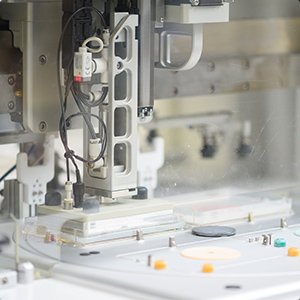
While I was in graduate school, my advisor at the time kindly offered me a position at Boston University in the US, where I worked as a researcher for a year before getting my PhD. There, I was able to experience not only research in the U.S., but also the life plans of researchers. In Japan, the percentage of female researchers is low, and I was very concerned about what kind of life plan I could imagine to balance my career. In the U.S., however, there are many women researchers, and they are very productive in terms of both writing papers and raising children. I thought, "If women researchers are so active in the U.S., why can't we have women researchers in Japan? It was a great experience for me in terms of research. It was a great experience in terms of research, but it was also an experience that broadened my vision in other ways.
Shortly after I returned to Japan and graduated, I was appointed as an assistant professor at Tohoku University. Since I had experimental experience with Escherichia coli during my undergraduate studies and had studied metabolic networks in the field of bioinformatics, I thought it would be to my advantage to conduct not only my own analysis, but also empirical experiments on data in metabolic systems research. The Mori lab, where I am currently working, is an experimental lab that does extensive analysis using E. coli. The strength of bioinformatics lies in its ability to handle a wide range of data, but most labs just have a server and an office, so even if you discover something from the data, you cannot do a demonstration experiment. This can be done in the Mori lab. Although the organisms are limited to E. coli, we can handle all the genes of E. coli, and we can return to the experiments after data analysis.
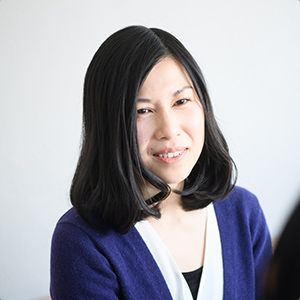
Daily schedule
I wake up at 6:30 a.m., get the children and myself ready while my husband prepares breakfast, and leave the house at 7:30 a.m. After taking the children to the kindergarten by train, I go to work at the university around 9:00 a.m. On days when there are experiments, I spend the whole day immersed in experiments, but even on days when there are no experiments, I find it hard to find time for my analysis work, because it is 5:00 before I leave the university if I have to deal with e-mails, paperwork, or teaching students. I cook dinner, clean up while my husband bathes the children, and the children usually go to bed around 9:00 p.m. After that, I do the remaining analysis and other tasks. Basically, I am almost never left as a one-person operation during childcare hours. It is inefficient to do anything while watching the kids, so I try to be efficient by having one of us watch the kids and the other do the housework. My parents' mother also comes to the house at short notice to help, and my husband's parents often take care of the children.
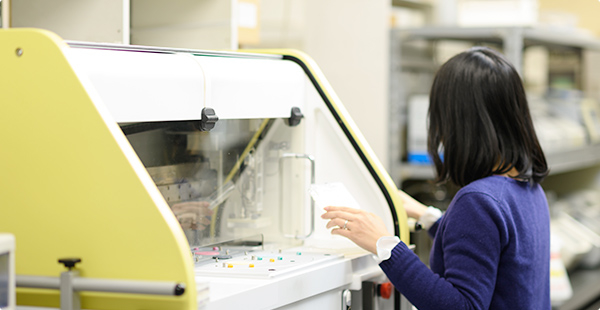
On days when we have experiments, there are always delays due to equipment delays or lack of cell growth, and we cannot take a day off for about a week after starting an experiment, so we plan our experiments around my husband's and my parents' schedules. I strongly feel that my research progress has slowed down after the birth of my child, because my experimental schedule will be delayed if I cannot accommodate my husband's schedule, and I need to set aside some time for daily analysis work. I think I have received a lot of support from the people around me, but still, I cannot avoid the fact that the birth of my child will put a stop to my research and career.
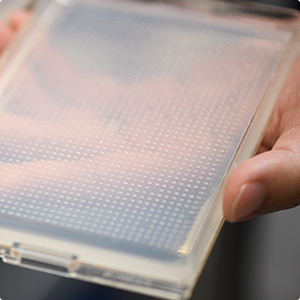
On issues related to the development of the research environment
I think it is difficult to have a fixed research period because of the tenure system, and that the period cannot be extended because of life events. Some people say that it would be good if the tenure system allowed continuous employment somewhere, but if, for example, the environment changes after five years and you don't know if you will be able to get another position, your future career will depend on the results you can produce in a short-term, intensive way. This system is incompatible with life events such as childbirth and childcare. I did not take maternity leave after giving birth and returned to work immediately after my maternity leave, but before giving birth there was no guarantee that I would be able to return to work. The problem of children on waiting lists is still serious, although it is improving, and although there were 10 nurseries within walking distance of my house that offered childcare for children aged 0, there was only one that accepted children under 6 months. I was lucky enough to find a daycare center within commuting distance by train, so I was able to return to work, but otherwise I would have had a 1-2 year gap. I suspect that many female researchers postpone childbirth to avoid the risk of childlessness, but considering that age has a significant impact on the success rate of fertility treatment, I believe they face a difficult choice. I would like to see a personnel system that takes into account the life plans of researchers, such as extending tenure during childbirth and childcare periods.
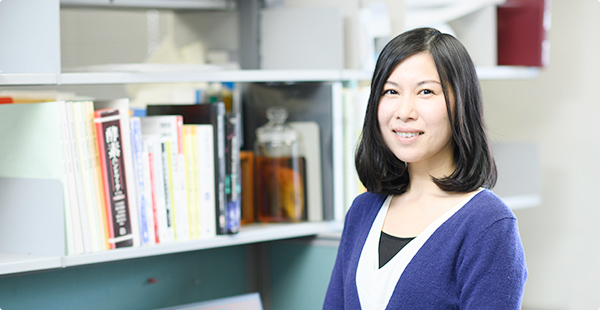
Life events are not that frequent, so if you have more than one person in a lab, I don't think there will be much overlap in life events. I think it would be much easier if young people, both men and women, could assume that life events will occur and complement each other's work in the lab. I think a lab with only one assistant professor is a difficult environment to have a baby, so a lab structure with several people would be better.

Division of Biological Science Systems Microbiology (Mori Lab.)
(March 2020)

-
2019.3 updated
Division of Information Science
-
2019.3 updated
Division of Biological Science
-
2019.3 updated
Division of Biological Science






